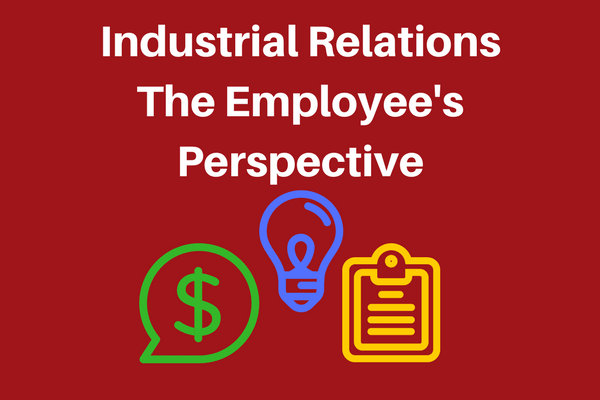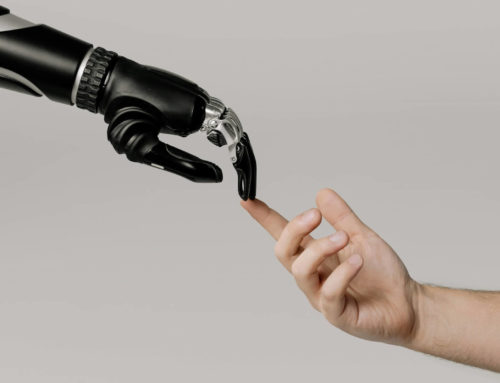The Role Industrial Relations Play In Government, Business & Society

What is The Role of Industrial Relations?
Good industrial relations form the backbone of our modern industrial society.
Without the proper structures and processes in place, modern industrial relations would crumble as we know it.
But what does “industrial relations” really mean, and why couldn’t our current economic or industrial construct function without it?
Are you a Small Business, Company or Large Organization looking for Industrial Relations Consulting?
Danshaw can help! Contact us for more information.
What is Industrial Relations and what does it mean?
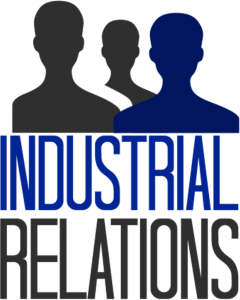 Let’s break down the concept:
Let’s break down the concept:
“Industry”: Industry refers directly to productivity – when one or many individuals are engaged in a productive task we call those people “industrious”.
“Relations”: In the context of “Industrial relations”, the word refers to any relationship that exists within a productive sphere between an employer and his employees and the union that represents them.
Industrial Relations: Industrial relations then refers to the relationship between employers and employees.
This needs to be a good relationship, the divisions need to be working together as efficiently as possible, in order to maximize economic gain and the potential for industrial growth.
In other words – without cooperation between these two divisions (employer and employee) – industrial progress and economic gain would grind to a halt.
Furthermore – the relationship between employer and employee may be directly or indirectly influenced by the union representing the workers.
Therefore – Industrial relations are essentially the interactions and relationships between employers, employees and the government, and the institutions and associations through which such interactions are mediated.
While Industrial Relations used to refer broadly to the relationships between employer and employees and as such encompassed functions such as HR Management, as well as union-management, the term has morphed and become more specific.
It is now referring only to issues of trade-unionism and labour-management relations while HR Management has become a separate but still fundamental function dealing with non-union employment relationships and company policy.
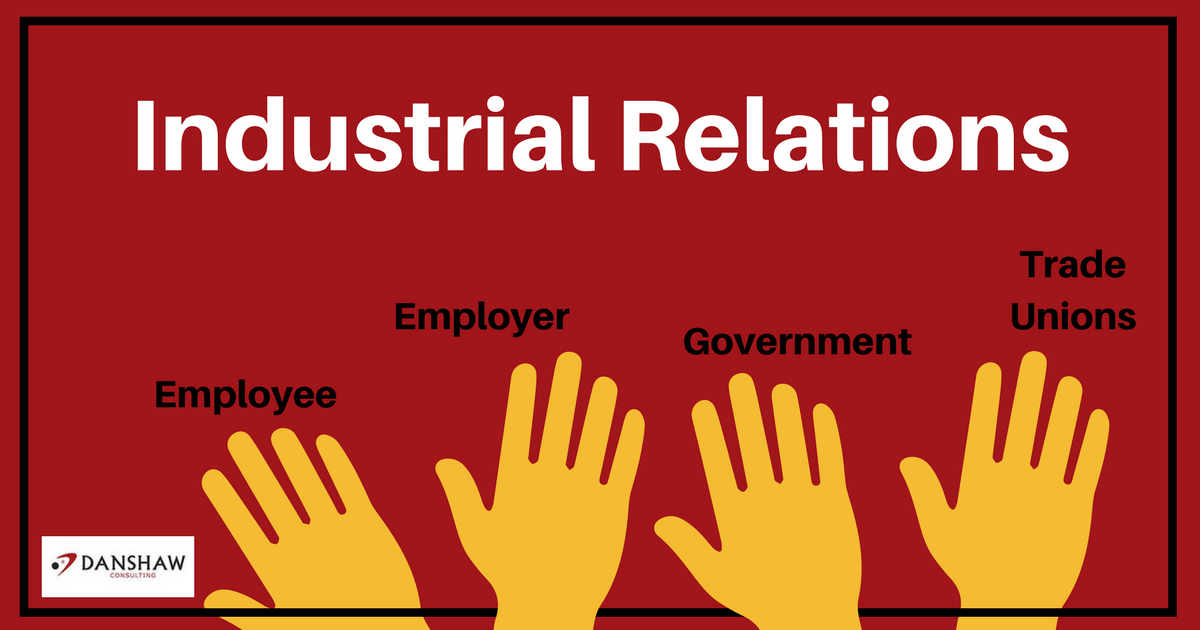
What are the Objectives of Industrial Relations and Why are Industrial Relations important?
1. Continuity of Production
The most vital function of industrial relations is ensuring uninterrupted production.
This means that all positions of employment, from managers to workers, are always filled so that full-scale production is ongoing.
I also means a steady income stream for all involved.
Industries rely on one another.
The goals of industrial relations then is to ensure that there is never a breakdown in communication or degradation of an industrial relationship leading to a stall in productivity and thus a stall in economic gain.
This leads us to the second reason good industrial relations are vital.
2. Minimize the occurrence of Industrial Disputes
Good industrial relations aim to minimize, if not eradicate, the occurrence of strikes, go-slows, lockouts and grievances which hamper industrial activity.
3. Minimize Wastage
Good industrial relations help increase and ensure continuous production.
Good industrial relations thus help minimize wastage of labour and material resources.
Industrial Relation from The Employee’s Perspective
How does “Industrial Relations” benefit the employee?
Union Representatives
Trade and/or labour unions resist the exploitation of employees by employers through equal bargaining power, and represent workers’ interests in the employment relationship.
It is the union (rep), on behalf of the worker, who ensures that the employee benefits from Industrial Relations and aim to secure the workers by helping them to have:
- Better wages that is sustainable for the future of the employee.
- Improved working conditions so that the employee can be productive, safe and happy.
- Mutual respect by ongoing conversation between the employer and their employees to keep the work relationship healthy.
- The proper Training and Skills Development to keep up with trends in the workplace so the employee will be able to progress within their career.
Union reps then ensure that the process of Industrial Relations benefits the employee, and protects the interests of the employee during negotiations and similar relations with the employer.
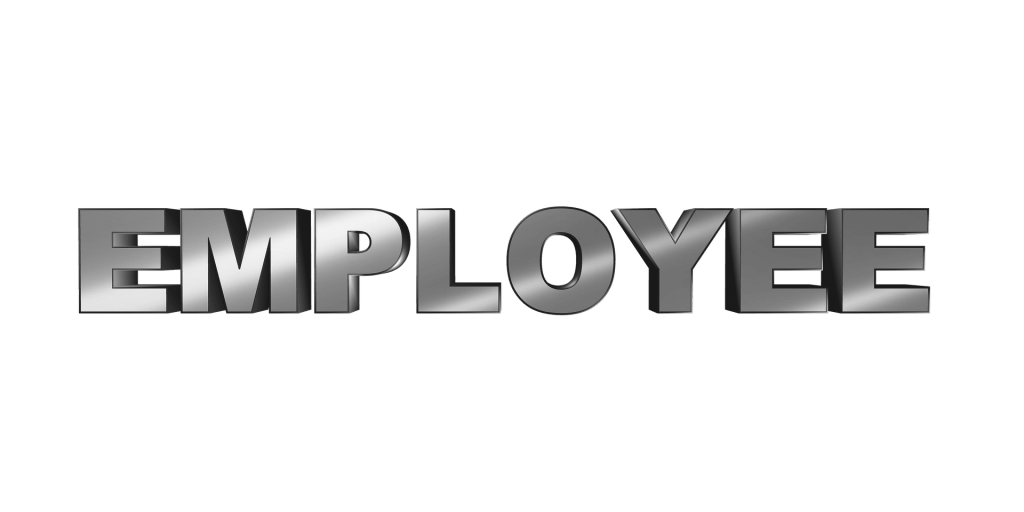
How do Unions help employees benefit from Industrial Relations?
1 – Collective Bargaining
Ever heard the saying “there’s strength in numbers”?
Labour unions represent the interests of a body of employees by means of a united front.
This allows the employees’ voices to be heard more effectively than if employees made the same requests or voiced the same concerns one by one in their individual capacity.
Unions have the power to organize strikes, boycotts, go-slows, sit-ins and formal protests in order to get the employers’ attention and urge them to consider matters from the perspective of the employees that the trade unions represent.
2 – Employee Welfare
Unions look out for the best interests of their members.
Unionized workers, for example, earn higher wages than their non-unionized counterparts, and they automatically have an intermediary who will step in for them during negotiations with employers about work schedules, income, safety etc.
Unions also exist in order to protect employees’ basic rights such as the right to access healthcare and be protected from accident and injury in the workplace.
The Role of Employer in Industrial Relations
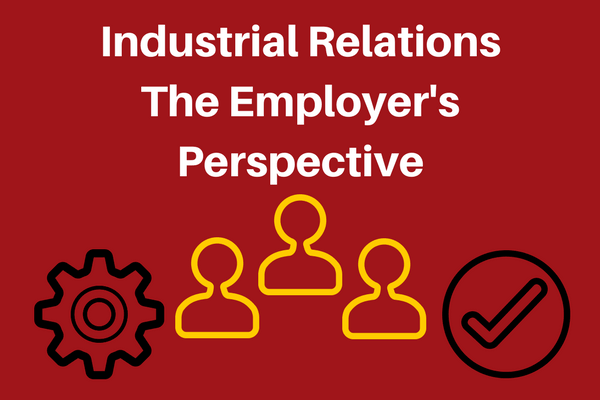
How does “Industrial Relations” benefit the employer?
Union Reps
Trade and/or labour unions represent the employees in negotiations with the employer.
Because the union rep represents the multitudinous voices of the employees, it allows the employer to hear only one clear and concise argument on behalf of the workers instead of having to field the same comments/concerns from hundreds of employees who are all saying the same thing.
Union reps save the employer time and thus money in this way.
While the interest of the union rep lies with the worker; his/her existence ultimately serves to benefit both parties; both employee and employer.
Union reps then ensure that the process of Industrial Relations benefits the employee, and protects the interests of the employee during negotiations and similar relations with the employer.
It also saves the employer man-hours and communication struggles by creating a platform for two-way communication between a large group of employees and a usually smaller group of employers.
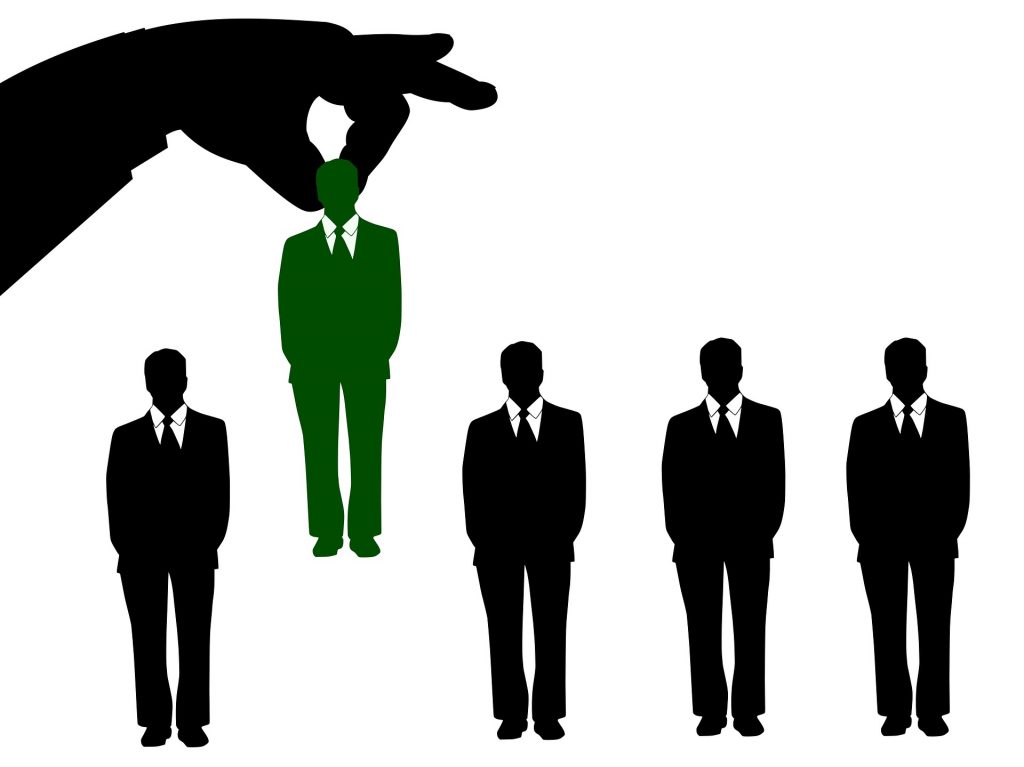
How do Unions help employers benefit from Industrial Relations?
1 – Collective Bargaining
A trade union represents the multitudinous voices of the employees and allows the employers to hear a clear and concise message; namely, the demands or concerns of the vast majority.
This streamlines conflict resolution and this is in the best interest of the employer.
While trade unions have the power to organize strikes, boycotts, go-slows, sit-ins and formal protests in order to get the employers’ attention, they also have the power to call them off as soon as an agreement has been reached.
This solves issues relating to vigilantism and individual employees who hold out on returning to work or fulfilling their role in the production cycle even though a respectable agreement between employer and employees has been reached.
Having set guidelines for conflict resolution serves both parties!
2 – Employee Welfare Watchdogs
Unions look out for the best interests of their members and said members automatically have an intermediary who will step in for them during negotiations with employers about work schedules, income, safety etc.
Unions also exist in order to protect employees’ basic rights such as the right to access healthcare and be protected from accident and injury in the workplace.
Trade Unions therefor also help employers assess and meet their legal obligations to their employees.
Employers know that, should any legislation change or new regulations be instituted, they will be informed through the proper channels and they can work with the trade unions to facilitate and convey to the employees any changes.
The Role of Government in Industrial Relations
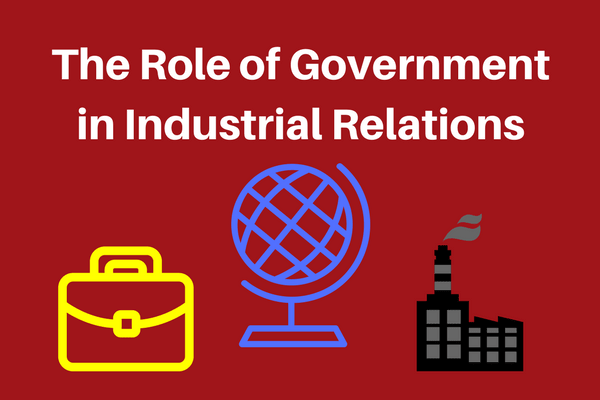
What Role does the Government really play in Industrial Relations?
My word is law:
The industrial relations processes, and the relationships between employees and employers, are influenced by the government and its agencies through the government’s construction, passing and implementation of relevant industrial relations law, policies, regulations etc.
The legal framework within which Industrial Relations must function is determined by the government and/or its agencies, possibly in consultation with other role-players in the industrial relations processes.
These includes things such as trade union representatives, employers and select employees.

The legal framework can be the legal limitations imposed on an employer/employee relationship.
For example such as the amount of hours an employee is allowed to legally work per week and how much an employer is obligated to pay an employee for a certain amount of work.
In South Africa, for example, the BCEA (Basic Conditions of Employment Act) can be seen as a governmental contribution to the governing of the relationship between employers and employees, and can as such be considered the government’s contribution to guiding the processes of industrial relations.
Judge and jury:
The government can also become directly or indirectly involved in the industrial relations processes when boundaries are overstepped or negotiations go awry.
The government could become involved in, for example, settling an industrial relations dispute in court, or adjusting or amending a policy which has proven itself flawed, outdated or newly irrelevant following the outcome of a certain case or set of negotiations.
How does the government benefit from Industrial Relations?
Basically, the government benefits from Industrial Relations in that a safe working environment promotes employee and employer satisfaction, which in turn helps maintain high employment rates which reflects well on the government and directly addresses and influences issues such as poverty and crime.
Industrial Relations in Society and what Role does it play
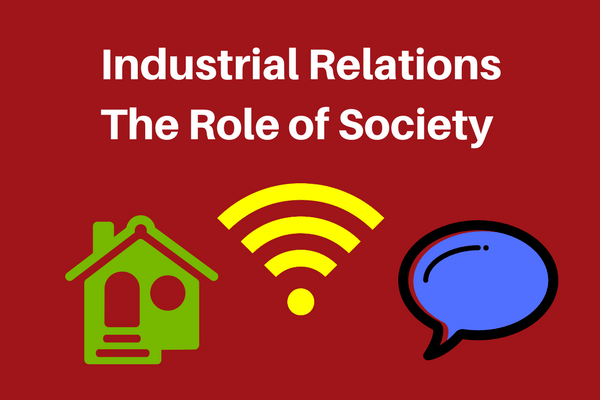
What has our Society at large got to do with Industrial Relations?
Society in general benefits from Industrial Relations by achieving the following objectives:
1 – A Living Wage
Industrial Relations forms part of the process to ensure that each and every employed individual in our country is making a living wage.
The minimum wage crisis should be of concern to every humanitarian in our society.
Not only the poor and/or unskilled benefit from a living wage – so do all industries and enterprises at large.
If all our manual labourers earn a living wage they will have more capital to cater to their basic needs and wants.
This will essentially ensure that people have enough money to spend in order to satisfy their basic human needs benefits everybody, albeit indirectly at times, because it means more money plugged back into our economy.
2 – Equality of Opportunity
Industrial Relations processes aim to achieve an equality of opportunity within our country’s workplaces.
Anybody who is not a heterosexual, cisgender, Caucasian, able-bodied male stands to benefit from strides taken toward equality of opportunity.
Those who campaign, through Industrial Relations channels, for equality of opportunity are campaigning for equal treatment and opportunity in the workplace free from the effects of preference or prejudice and unhampered by any artificial barriers (read: “glass ceiling”).
3 – Rights of the Individual
The Industrial Relations processes and channels that are in place help protect the rights of the individual.
This means that, even if you are not currently employed, the IR processes are campaigning on your behalf, already fighting for your rights to be respected, should you ever enter an industry.
4 – Work Life Balance
A balance between work and your personal life is extremely important to keep yourself up to high standards.
Industrial relations aims specifically to create a balance between being highly productive and enjoy the job you are in to the maximum.
This will be beneficial to both the employee and employer in the long term.
When every business/employee relationship are balanced optimally, it would have good consequences for the society in general.
Conclusion
Absolutely everybody should know the who, what, when, where, and why of labour relations and how industrial relations management works.
Knowledge is power, and the above should have adequately equipped you to identify and address breakdowns in communication and the subsequent halt in production or lapse in productivity.
Whether you are an employee, an employer or a casual observer, it is important that you know who to contact in the event of a breakdown in communication or unfair treatment in the workplace.
Open lines of communication are vital to ongoing economic and industrial growth; we hope this guide to navigating the murky waters of industrial relations has taught you exactly who you’ve got in your corner, and who to contact in a time of crisis.
Industrial relations exist to serve and protect everybody involved – from the employee, to the owner, to the public at large and all the way through to the government.
If the lines of communication are open, and industrial relations are undertaken, everybody wins.
See also for more information
Industrial Relations – Wikipedia
Perspectives of Industrial Relations – www.leoisaac.com
Industrial Relations (IR): Concept, Scope and Objectives – www.yourarticlelibrary.com

